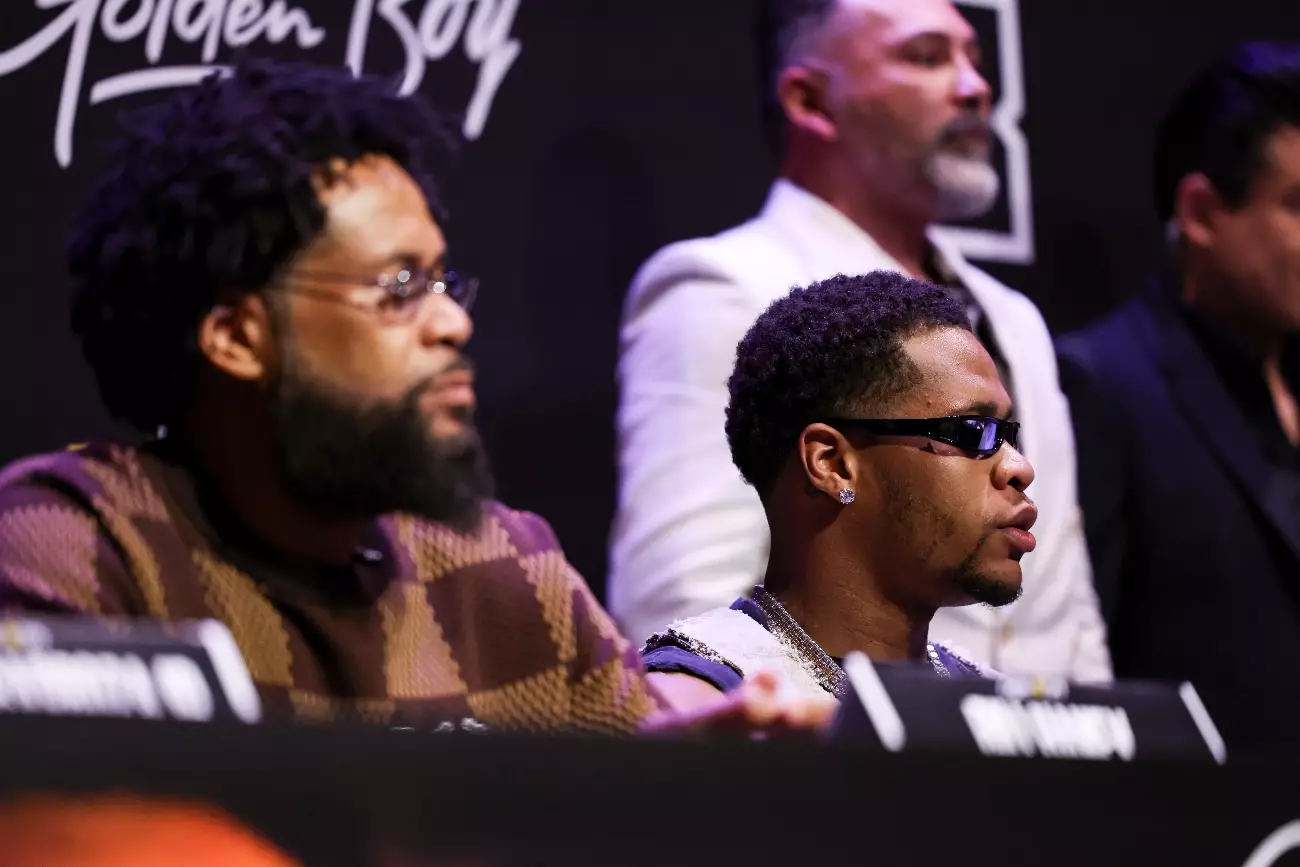In the high-stakes world of boxing, the interaction between promoters and fighters often shapes public perception and career trajectories. The recent altercation between promoter Eddie Hearn and boxer Devin Haney at the Riyadh Season event serves as a striking example of the complexities of these relationships. This article delves into the nuances of their conflict, exploring the implications of expectations, social media conduct, and the shifting dynamics of a fighter’s status following a setback.
Eddie Hearn, a prominent figure in boxing promotions, found himself at the center of controversy after Haney expressed his frustrations regarding the lack of ringside tickets for the Anthony Joshua vs. Daniel Dubois event. The crux of Hearn’s response was a firm assertion that there were no tickets available due to prior commitments and scheduling conflicts. The fact that Haney contacted him for tickets on the morning of the event laid the groundwork for a misunderstanding that escalated into public view.
Hearn’s grievance was two-fold: he felt that Haney’s last-minute request was unreasonable and was compounded by the fact that Haney had recently suffered a significant loss in the ring against Ryan Garcia. The implications of such a defeat can be staggering for a fighter’s reputation and standing in the boxing hierarchy. Therefore, Hearn’s inability or unwillingness to grant Haney preferential treatment raises questions about loyalty, status, and the expectations fighters hold towards their promoters.
A pivotal element of this altercation was Haney’s choice to vocalize his frustrations on social media platforms. Today, social media serves not only as a means of communication but often becomes the battleground where grievances are aired and reputations are challenged. Hearn’s critique of Haney as “arrogant” draws attention to the precarious relationship that fighters, promoters, and their audience share in this digital age.
By taking to Twitter rather than directly addressing Hearn, Haney positioned himself as a victim of circumstance in the public eye, yet this move may have also undermined his credibility. Hearn’s view that such behavior is reminiscent of a “little kid” raises the question of maturity and professionalism that athletes must adopt, especially when facing public scrutiny. The implication is that, while social media offers a platform for expression, it can also lead to diminished respect within professional circles.
A deeper examination of the exchange reveals a clash of personalities and expectations. Hearn’s portrayal of Haney as someone who has lost touch with the realities of the sport reflects an ongoing narrative in boxing about the volatile nature of a fighter’s career. Once a celebrated champion, Haney now finds himself reassessing his position and the treatment he deserves from those in influential roles like Hearn.
This conflict points to a common theme in many sports: the struggle between rising stars and established promoters. It raises questions about what happens to a fighter’s perceived value following a significant defeat. Does falling from grace in the ring mean diminished respect and support from those who once championed them? Hearn’s refusal to accommodate Haney suggests a harsh reality where loyalty can be fleeting in the face of performance.
The spat between Eddie Hearn and Devin Haney exemplifies a broader conversation within combat sports regarding expectations, professionalism, and respect. As athletes pursue their dreams within the often turbulent environment of boxing promotions, the importance of mindful communication—especially in a digitally connected world—cannot be overstated.
This incident serves as a cautionary tale for both fighters and promoters alike. In a sport where reputation and relationships are paramount, the choices made in moments of frustration can have lasting effects. For Haney, recovering from this setback is about more than just wins in the ring; it also entails navigating his relationship with promoters and the ways he communicates with them. Similarly, for Hearn, it reinforces the necessity to manage his public demeanor and expectations surrounding those he works with. In the world of boxing, every interaction carries the weight of consequences, making it essential for both parties to balance personal feelings and professional duties wisely.

